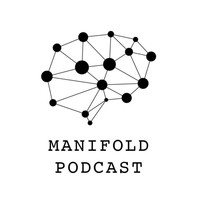

#1762
Mentioned in 22 episodes
Do Androids Dream of Electric Sheep?
Book • 1968
Published in 1968, 'Do Androids Dream of Electric Sheep?
' is set in a post-apocalyptic San Francisco after a nuclear war.
The story follows Rick Deckard, a bounty hunter tasked with 'retiring' six escaped Nexus-6 androids.
The novel delves into profound philosophical questions about the nature of life, empathy, and what defines humanity.
It also introduces the concept of Mercerism, a religion that emphasizes empathy and compassion.
The book is known for its complex characters, including Deckard's moral dilemmas and the ambiguous line between human and android, which has been a significant influence on science fiction and popular culture, including the film 'Blade Runner'.
' is set in a post-apocalyptic San Francisco after a nuclear war.
The story follows Rick Deckard, a bounty hunter tasked with 'retiring' six escaped Nexus-6 androids.
The novel delves into profound philosophical questions about the nature of life, empathy, and what defines humanity.
It also introduces the concept of Mercerism, a religion that emphasizes empathy and compassion.
The book is known for its complex characters, including Deckard's moral dilemmas and the ambiguous line between human and android, which has been a significant influence on science fiction and popular culture, including the film 'Blade Runner'.
Mentioned by





























Mentioned in 22 episodes
Mentioned by 



Lex Fridman

485 snips
#370 – Edward Frenkel: Reality is a Paradox – Mathematics, Physics, Truth & Love
Mentioned by 



Gavin Purcell

162 snips
OpenAI's New ChatGPT Agent Might've Just Stolen Your Job
Mentioned by 



Ken Liu

111 snips
Ken Liu: Art in the Age of AI — #79
Mentioned by 



Dan Schreiber

82 snips
No Such Thing As A Shark With A Ponytail
Mentioned by 





Tom Holland


Dominic Sandbrook

67 snips
21. The History of the Future
Mentioned as the original story that the movie Blade Runner is based on.

29 snips
Sam Stein and Francis Fukuyama: A Coming Deportation Blitz?
Mentioned by 





David Runciman


Shannon Vallor

23 snips
Thinking About Thinking Machines: Do Androids Dream of Electric Sheep?
Mentioned by 



Charles Liu

20 snips
Can We Predict the Future? with Charles Liu
Mentioned by ![undefined]()


Henry Zebrowski

19 snips
Episode 617: The Black Knight Satellite
Mentioned as the book that started the Blade Runner story.

16 snips
Episode 175: Blade Runner: Androids and Humanity (Part One)
Mentioned by 



Julian Bleeker

15 snips
N°091 - Imagine As Hard As Philip K. Dick with Tobias Revell
Mentioned by ![undefined]()


J. Burden

13 snips
Do Androids Dream of Electric Sheep? w/ Thomas777: The J. Burden Show Ep. 407
Mentioned by ![undefined]()


Rudraneil Sengupta

12 snips
Ep 429: Rudraneil Sengupta is Embedded
Mentioned by Andrew as the source material for the film Blade Runner.

Ep 681 - Neuromancer, by William Gibson
Mentioned by ![undefined]()


Ben Brock Johnson

Robot hosts, real relationships: How AI is changing human connection
Mentioned as the novel on which the film 'Blade Runner' is based.
#1069 - 7 Sci-fi Novels Every Christian Should Read
Mentioned by 



Jay Springett

Episode 009: Pattern Recognitions
Mentioned by ![undefined]()


Dror Poleg

Dror Poleg: Rethinking Our Exponential Future
Mentioned by 



David Runciman

Thinking About Thinking Machines: Isaac Asimov’s ‘Franchise’
Mentioned by 



Tom Luongo

Tom Luongo: Why the U.S. Wants Europe Weakened And Is Reshaping The World With Russia And China



